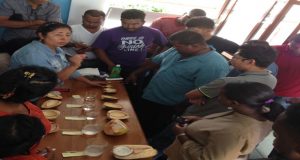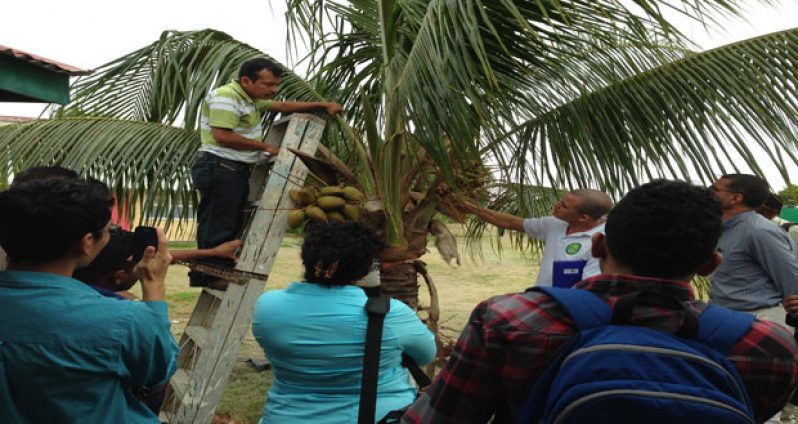COCONUT producers who had participated in a training programme run by two experts from Mexico have said that the programme was, for them, an eye opener on the possibilities of increasing their income from the production of coconuts.
“WE do not have any coconut experts here in Guyana, so the training programme provided very valuable information for us in the industry. The lecturers were excellent,” one farmer said.
“We learnt about innovations and practices that can make a significant impact on the profitability of coconut production.”

He added that implementation of the skills learned during the three-day programme would greatly boost production and productivity within the industry.
“I believe that if we implement what we have learnt, there will soon come a time in Guyana when no coconut producer or processor needs to be poor,” he said.
“It is now an exciting time; a time for the revival and the rapid development of the coconut industry,” he added.
Another spokesman for the participants, who represented a company distributing coconut water, said: “We in Guyana tend to do things on a sort of experimental and small-scale level. What the experts have shown us are the many possibilities of income generation through a bolder and more aggressive approach to the industry.”
He said the information received was very useful to his organisation, which is looking to establish a new coconut plantation.
Thirty-five persons benefited from last week’s three-day seminar on coconut production, made possible by a bilateral agreement between the Governments of Guyana and Mexico, with support from IICA.
The resource persons had been Ms. Matilde Cortazar Rios and Mr. Irving Manuel Fuentes Del Angel of the Mexican National Institute of Research on Forestry, Agriculture and Livestock (INIFAP).
The seminar participants included technicians of the National Agricultural Research and Extension Institute (NAREI) involved in technology transfer, besides coconut producers and those involved in the export of coconut water and its local distribution.
During the three-day exercise, conducted at NAREI, Mon Repos, training focused on good husbandry practices, accessing quality plant materials, pests and disease management, with some amount of emphasis also being placed on value added development.
The IICA, through its representative, Mr. Wilmot Garnett, described the programme as just the beginning of several to be held by the Institute to enhance the capacity of local coconut producers, processors, and entrepreneurs in the industry. (Clifford Stanley)





.jpg)








